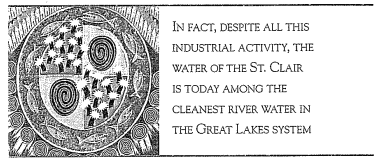This 1998 document from Imperial Oil Ltd, the Canadian subsidiary of Exxon, is an article in the “Imperial Oil Review” written by Robert Peterson, who served as chairman of Imperial Oil until 2002. This document is part of the ClimateFiles Imperial Oil document set, gleaned by DeSmog researchers from the Glenbow Imperial Oil Archive Collection.
Peterson’s writing in this article is often in direct opposition to statements and reports previously issued by Imperial in the early and mid-1990s. It also signals a blatant rhetorical shift towards the climate denialist language mainstreamed by Exxon and its many front groups during the late 1990s.
Of most significance in this regard are Peterson’s remarks on CO2 and the greenhouse effect:
“One thing is clear in this debate. There is absolutely no agreement among climatologists on whether or not the planet is getting warmer or, if it is, on whether the warming is the result of man-made factors or natural variations in the climate.”
However, in multiple research and position papers published by Imperial 1990 and 1991, Imperial expresses clearly that
“the scientific debate on global warming continues and there appears to be emerging scientific consensus…[future higher global temperatures] could have significant impacts on agriculture, forests, fisheries, and water resources on low lying coastal and island communities from changing sea levels.”
Despite hedging these statements by reminding the reader that uncertainties still exist, Imperial nonetheless concluded that the “current climate models predict that global temperature, precipitation and sea levels all rise with increased trace gas concentration” and that “many nations, including Canada, are taking the view that the risks of waiting for further research results before taking action to limit greenhouse gas emissions are too great.”
The importance of these obvious contradictions is compounded by their timing. In 1998, the year in which Peterson published this article, Imperial’s parent company Exxon began giving funding to the Center for the Study of Carbon Dioxide and Global Change, a non-profit climate denial organization funded by Peabody and the Koch Foundation in addition to ExxonMobil. The Center is specifically focused on re-framing discussions of atmospheric CO2, arguing that emissions reductions would hurt plant life, touting CO2 as “the elixir of life itself” and “plant food.”
This language of ‘Co2-as-plant-food’ was previously absent from Imperial’s publications, but Peterson’s article pivots from Imperials’ usually moderate climate discourse and instead regurgitates many of the Center’s talking points:
“Carbon dioxide is not a pollutant but an essential ingredient of life on this planet – the plant world cannot live without it. Furthermore, the question of whether or not the trapping of ‘greenhouse’ gases will result in the planet’s getting warmer – and I will comment on this shortly – has no connection whatsoever without day-to-day weather.”
The timing and abruptness of this shift should be unsurprising when considered in the broader context of Exxon’s other climate denial initiatives in 1998. In April 1998, Exxon was identified as a participant in an American Petroleum Institute plan to challenge climate science, including efforts to “identify, recruit and train a team of five independent scientists to participate in media outreach.” Later that year, the ExxonMobil-funded think tank the George C. Marshall Institute co-published the “Oregon petition” challenging the scientific consensus around climate change, signatories of which included many fictional characters and pop music celebrities. 1998 also saw the release of a climate denialist film titled “The Greening of Planet Earth Continues” from the Greening Earth Society, a front group for the Western Fuels Association. The film featured many prominent climate deniers like Patrick Michaels and Robert Balling Jr., and also highlighted the stance that “carbon dioxide is not a pollutant. Carbon dioxide is a nutrient – a very important nutrient, perhaps the most important.”
Other notable quotes from Peterson’s 1998 article include:
“Fears about increasing environmental degradation in Canada and the United States are unfounded.”
“In fact, I read recently that some people are complaining that Lake Erie has become too clean”
“Every statement on the state of the environment appears to be wrapped in gloom and doom. It seems to be politically incorrect to say anything good about it.”
“There is absolutely no agreement among climatologists on whether or not the planet is getting warmer or, if it is, on whether the warming is the result of man-made factors or natural variations in the climate.”
“I feel very safe in saying that the view that burning fossil fuels will result in global climate change remains an unproved hypothesis.”


